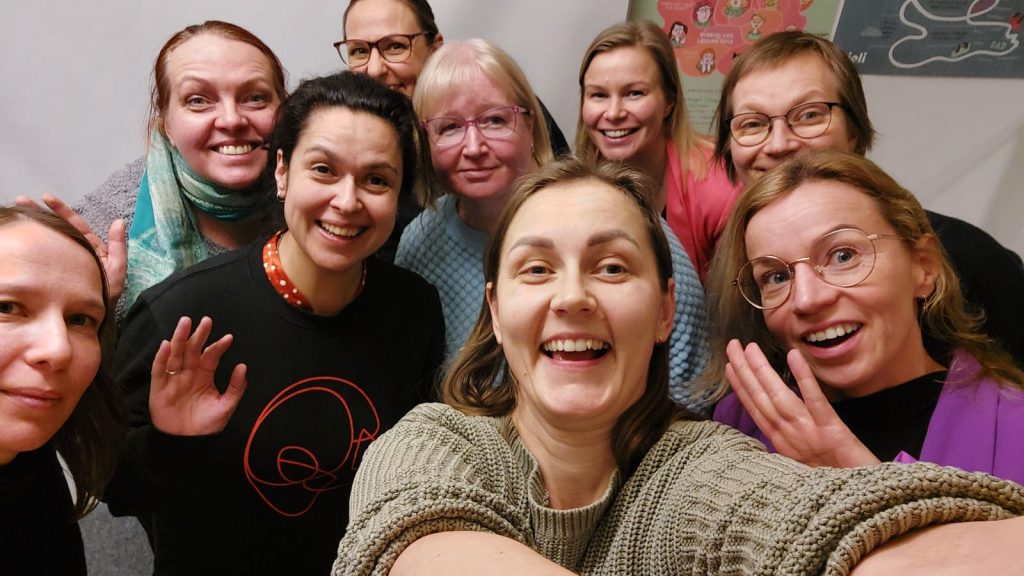Finland & Estonia: Neighbor nations came together to spread the LTC sparkle
“The LTC approach is not merely an intervention, but rather a shift in mindset.“
MIELI & NGO Peaasjad
It’s hard to believe that a year has passed since the Let’s Talk project began. It has been quite exciting to hear in monthly consortium meetings how Europe-wide projects have started. The Let’s Talk project is now being implemented in eleven national organisations that share foundations, values, and activities promoting the mental health of children, young people, and families.
The project groups of MIELI (Finland) and NGO Peaasjad (Estonia) met online in the autumn of 2023, and then gathered in a windy and stormy Helsinki for two innovative days on the 22nd and 23rd of January. The two organisations looked back at the history of LTC work in Finland and discussed the diversity of LTC multi-professional environments and the factors that enable implementation. The groups also discovered several common factors, such as family culture and social structures, as well as social and health services.

MIELI Finland: a big sister that paves the way
In LTC history in Finland, there have always been LTC champions, passionate people who actively are spreading and working hard with LTC in their fields. This shows one very important aspect at the core of the Let’s Talk project: people matter.
The trainers, LTC coordinators, specialists, and those who presented their own LTC experiences during this meeting had a visible sparkle in their eyes and that brought lots of hope and validated the sense of being on the right path.
The conclusion was that after over 20 years of LTC work, Finland became a sort of big sister to Estonia. Often, the older sister is experimenting and blazing a trail. However, in doing so, she may also make some mistakes. The two teams took the time to align their perspective by diving into the past and sharing fresh thoughts for the future. It was enriching for both to discuss vulnerabilities and strengths openly and without judgement.
LTC guidelines bring change to the service culture
The Finnish and Estonian organisations agreed that implementing and disseminating LTC work is intriguing, exciting, and even ambitious. It is proven that using LTC can change the service culture to become more positive, equal, and open, ultimately creating a positive, receptive, and caring mindset for its users. Once specialists understand the benefits of LTC, it is impossible not to step out of the old mindset.
Lastly, training new LTC practitioners and trainers is important, but that alone is not enough. To ensure the effective implementation of LTC to different policies and strategies, it is important to establish clear structures and guidelines at different levels: the national, local, and organizational levels, as well as for job descriptions and employee structures. Adapting the LTC approach and service model is important from both cultural and sector-specific perspectives.
Inspiring takeaways to bring home
- The enthusiasm and sparkle in the eyes of every specialist and trainer who presented their work with LTC.
- The strong backbone of LTC in Finland consists of rich research evidence, national and regional strategies, and legislation that require specialists to ask about children when working with adults with kids.
- The overall positive and solution-oriented mindset in a service culture where specialists and parents are equal.
- For LTC to remain in institutions, the structures to make LTC sustainable long-term are needed.
“In LTC you don’t evaluate the child. Adults evaluate their own ability to support the child in their everyday life towards well-being.”
